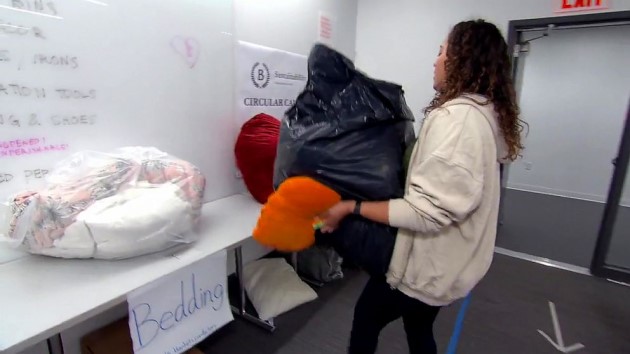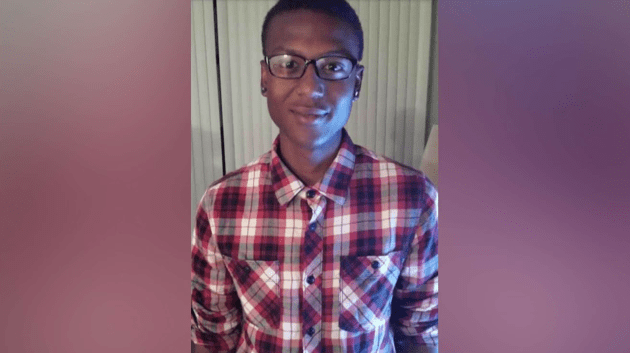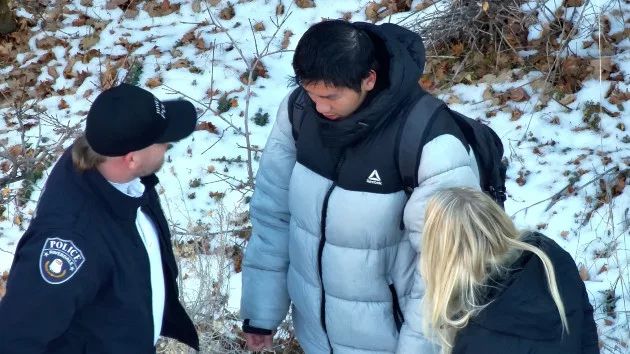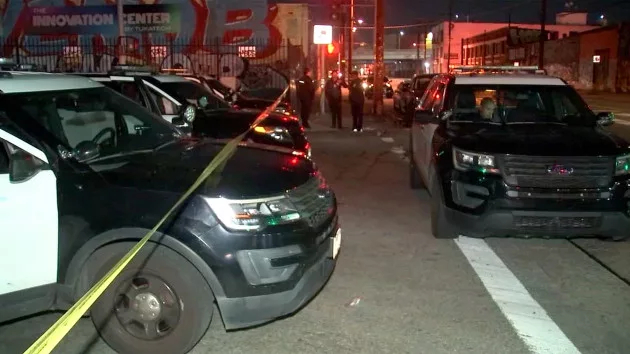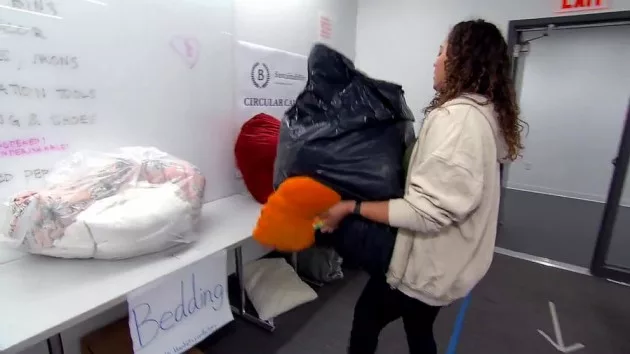
(NEW YORK) — As college students leave their campuses behind for a much-needed summer rest, some tend to leave behind the remnants of their dorm life.
But those used and worn-out pillowcases, lamps and other trinkets eventually end up in landfills, adding to the already growing waste problems across the globe, according to environmentalists.
A professor at Barnard College and student volunteers, however, are working to give those dorm leftovers a second life.
“We ask them to bring it here and we sort it and we save as much as we can for the fall to sell to the incoming students. And what we can’t save, we donate locally,” Sandra Goldmark, a Barnard professor of sustainability who runs the school’s “Give and Go Green” program, told ABC News.
Goldmark said the students are processing more than 20,000 pounds of used goods and last year they re-sold almost a third of what they collected. The students have sorted, cleaned and in some cases refurbished everything from a microwave to king-size pillows.
Goldmark said her goal is to help the world rethink our relationship to “stuff” and how to create that circle of re-use at home. The school’s program is similar to other circular economy services such as online buy nothing groups and social media forums.
Goldmark noted that buying second-hand items makes a big difference. For example, roughly 12 million pounds of furniture is thrown out annually, and 80% of those discarded items end up in landfills, according to the U.S. Environmental Protection Agency.
“Fifty-five percent of global emissions come from the production and use of everyday items like food and cars and clothes,” she said.
Goldmark also pushes for the repair and restoration of broken objects and giving them to interested users. She runs a design lab for students where they can learn how to fix everything from ceramics to wires to a lamp.
“I think that starting with repair and starting with fixing is a really simple, tangible thing that you can do and that anybody can do at any scale,” Goldmark said.
The professor said she hopes that more campuses and organizations take note of the program and continue to spread the word about the benefits of a circular economy.
“If we could create a system where it was just as easy for you to get used forks and decorative pillows as it is for you to get new ones, that would be a big step forward,” she said.
Copyright © 2023, ABC Audio. All rights reserved.


